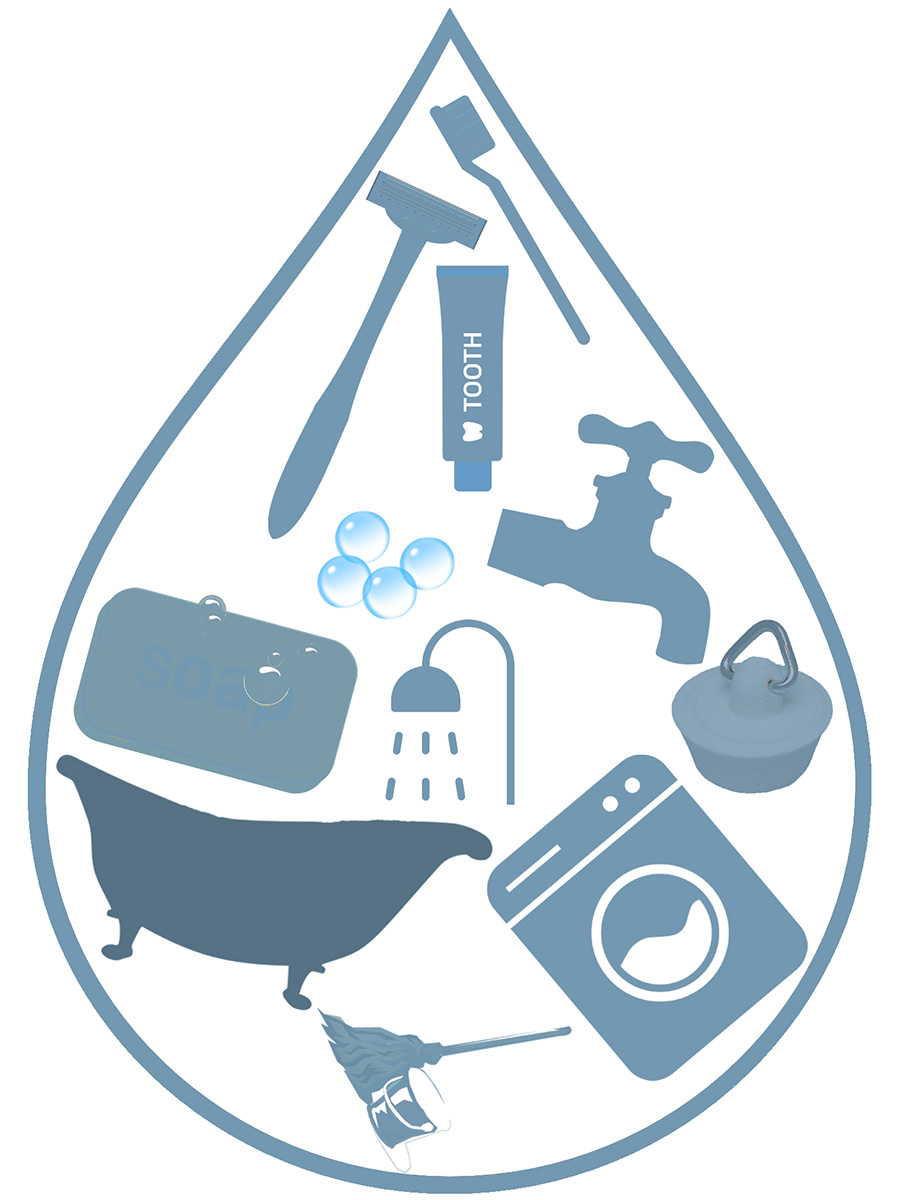
By Becky Schuerman, Extension Associate, Domestic Water/Wastewater Management
With the forecast of another dry year, more people are inquiring about reusing their graywater to water their plants or lawn. It is illegal in Nebraska to discharge untreated graywater. Wastewater in Nebraska is comprised of graywater and black water. Graywater is defined in Nebraska Onsite Wastewater Regulations as water that has been used for bathing, laundering clothes and sink waste that is not kitchen sink waste. Blackwater is water that carries off waste from toilets, urinals and kitchen sinks. If graywater is applied to land without treatment, it can lead to environmental degradation such as long-term damage to the soil profile from high dissolved solids, as well as posing a threat to public health. There are many unknowns that go down the drains within our homes, thus graywater can harbor the following contaminants:
• Microorganisms — The water is contaminated by microorganisms, many of which can cause disease. Numbers of coliform bacteria found in laundry wastewater are highest in the wash water and lowest in rinse water. Numbers of coliform bacteria were found from 1 million colony forming units per 100 ml when infant clothes were washed, to 25 colony forming units per 100 ml in the second rinse water. One hundred ml is less than 1/2 cup.
• Chemicals — The water may be polluted chemically by dissolved sodium, nitrogen, phosphates and chloride, or by organic chemicals such as soap and detergents. Wash cycle water was found to have concentrations of sodium, phosphate, boron, surfactants, ammonia and nitrogen.
• Solids — The water may be physically polluted by particles of dirt, hair, dead skin cells, lint, fabric fibers, fats/oils, food particles and/or fecal matter. Laundry wash cycle water was found to be high in suspended solids including lint, turbidity and other organic material.
People can reuse graywater, such as laundry water or dishwater, only after:
1. It has been treated for protection of public health and the environment.
2. It is discharged at a location and in a manner that does not put the environment or human health at risk.
3. A permit has been obtained.
Treatment systems typically include components that allow for settling of solids, anaerobic digestion, aeration, clarification or filtration and disinfection.
In addition, the dwelling must be plumbed so that graywater is kept separate from black water — from toilets and kitchen sinks. Systems must be designed by an engineer and designs must be approved and permitted by the Nebraska Department of Environment and Energy (NDEE) Onsite Wastewater Program.
Legal graywater systems are more expensive than traditional onsite wastewater treatment systems and require considerably more maintenance than a traditional system. If you are interested in installing a graywater treatment system, contact the NDEE Onsite Wastewater Program through the agency switchboard at 402-471-2186.
Some content in this article was compiled by former Project Manager, Extension Agronomy & Horticulture, Jan Hygnstrom.
FOR MORE INFORMATION
For water and wastewater topics, check out https://water.unl.edu and subscribe to the monthly Water Column E-newsletter.